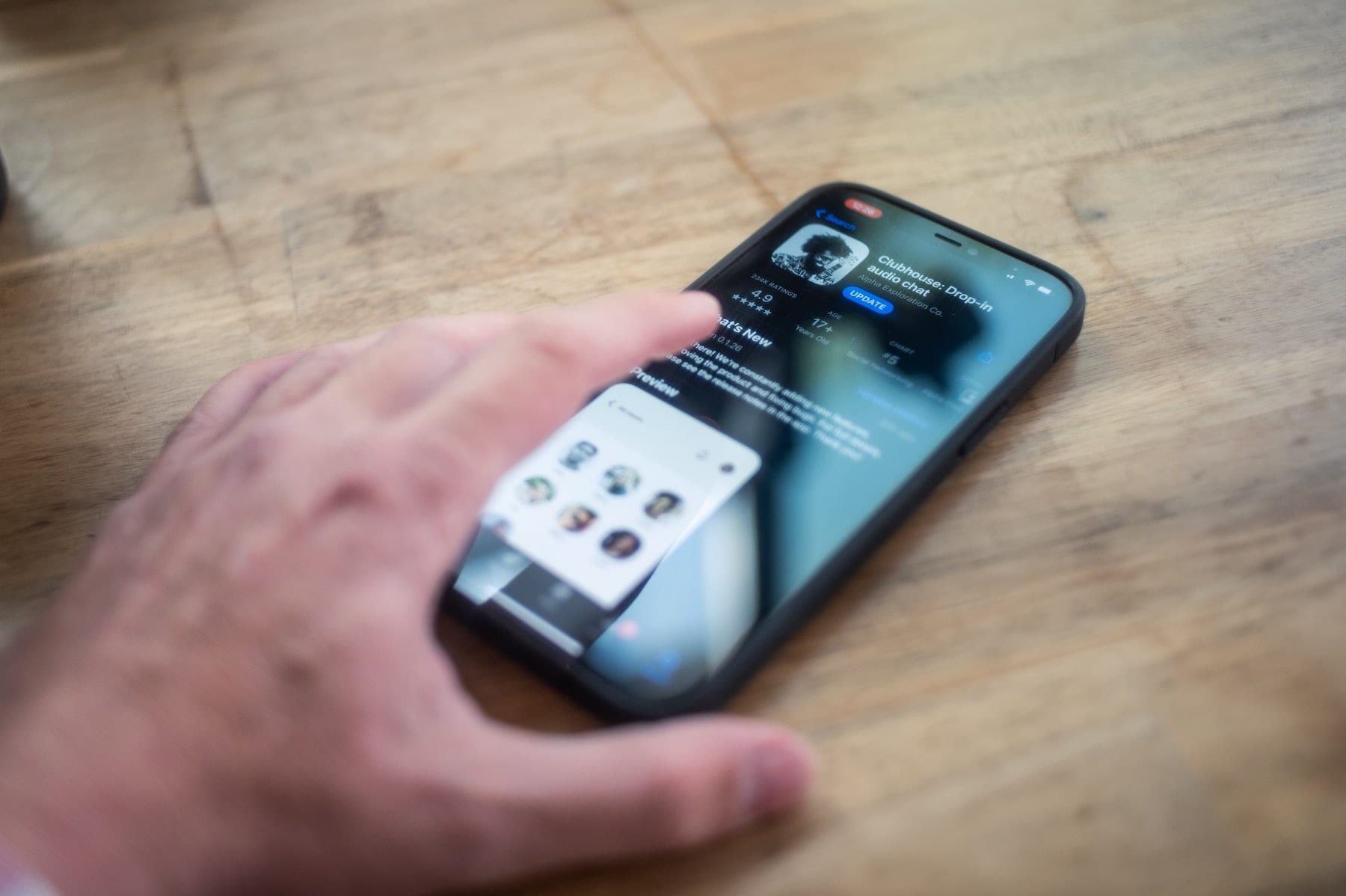It’s likely that you’ve gotten wind of the buzz surrounding Clubhouse – a new social media app that operates on an invitation-only basis and is designed for real-time interaction. The idea behind the app is certainly novel but with 10 million users amassed for an exclusive platform that’s only available on iOS, Clubhouse is clearly a big deal. At the time of writing, there are hundreds of Clubhouse invite codes listed on online selling stores like eBay and Etsy – indicating that the hype is far from slowing down.
But what does this private app actually do? And can Clubhouse be utilised by your business for effective marketing purposes?
Clubhouse is a live audio app that’s certainly a breath of fresh air in a social media landscape that’s populated by similar apps offering microblogging or pictorial posts. It works in a similar way to a podcast and can feel as though you’re listening in on someone’s telephone call. In a nutshell, Clubhouse enables users to create rooms and clubs within a virtual environment.
In the app, each room is its own event, with solely audio discussions taking place among users. These discussions could take the form of a scheduled event, or it could pop up with no announcement attached. Discussions can take on more interview-based formats where individuals listen in, or they can call on the thoughts of multiple people.
The rooms and clubs within the app are based on searchable themes and keywords can let users know what unites a group or event. Significantly, there are no recordings or past broadcasts available to listen to – everything has to be listened to live – making the format very similar to traditional radio broadcasts.
The unique format of Clubhouse means that there are plenty of challenges and opportunities alike for marketers to promote their business in imaginative ways – and with an audience that’s already 10 million strong and growing rapidly in 2021, there’s plenty to gain for the brands that successfully market themselves on the platform.
Let’s take a look at some of the key ways in which Clubhouse can be utilised for both marketing and digital PR:
Realising The Potential Clubhouse Holds for Marketers
The Clubhouse app can offer different things for your business depending on what you’re looking to achieve from your campaigns.
Currently, the app has shown significant potential when it comes to promoting users as thought leaders and expanding audiences within their own niche industries.
When it comes to use cases, we’ve reportedly seen some attorneys being capable of finding new clients via Clubhouse by using the platform as an opportunity to share their expertise while demonstrating their value to followers within the rooms that they’re using. Some brands have even taken it upon themselves to sponsor discussions on the app while sharing business insights in rooms of their own.
Although it’s early days for the app, one of the most significant benefits emerging for brands is the opportunity to share knowledge and insight through various discussion points that can build on community connections. These demonstrators of value can be particularly useful with Clubhouse rooms seeing high volumes of engaged and active users.
As a marketer, it’s possible to ensure that your brand sparks the right topic of discussion and use it to draw in a refined and engaged audience, helping to boost your presence online and optimise your audience reach.
How Clubhouse Can be Used to Market Businesses
There are plenty of approaches in which businesses are building their presence and creating successful marketing campaigns on Clubhouse. Let’s take an actionable look into some of the most significant approaches taken by marketers on the app:
1. Building Trust in The Age of Authenticity
In 2020, the COVID-19 pandemic has pushed consumers towards companies with authentic, trustworthy messaging over their big name counterparts with decades of brand loyalty. This is a shift that is likely to continue through 2021 and beyond.
In times of financial uncertainty and rolling news events, consumers are eager to know that brands care about their needs and share their values. This sharing of values makes Clubhouse an ideal platform in which to forge a community while helping your business to show off its more authentic and trustworthy side.
According to Krystal Wu, HubSpot’s social media community manager, “Clubhouse offers a lot of opportunities for connection with celebrities, a vast variety of people in different industries, and even close friends. It opens the door for live conversations allowing people to be vulnerable within a community space. This type of connection is unique to deliver audio content with small to large groups of people. Its unscripted content that anyone can be a part of.”
Brands that are active on Clubhouse can earn credibility by sharing their knowledge on topics that they’re experts on. However, they could also earn trust because they’ve made themselves available to listen and talk candidly with anyone who chooses to listen.
For brands looking to create a room to share expertise on Clubhouse, it’s an easy process to get started, and you’ll be able to see a ‘Start a room’ button on the app’s homepage.
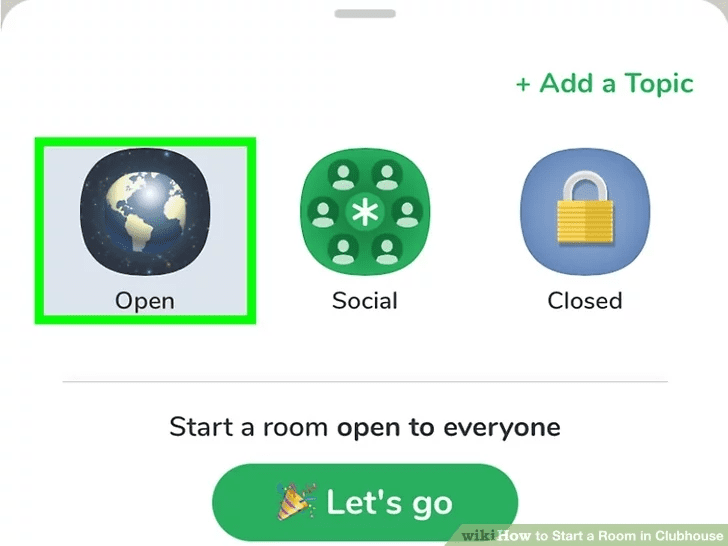
(Image: WikiHow)
There are three different types of room on the platform, ‘open’, ‘social’, and ‘closed.’ Open rooms are for anyone to join, social rooms are only open to people you follow, and closed rooms are strictly invite-only. For the purpose of building your brand, it’s likely going to be worth creating an open room to share your knowledge with larger audiences.
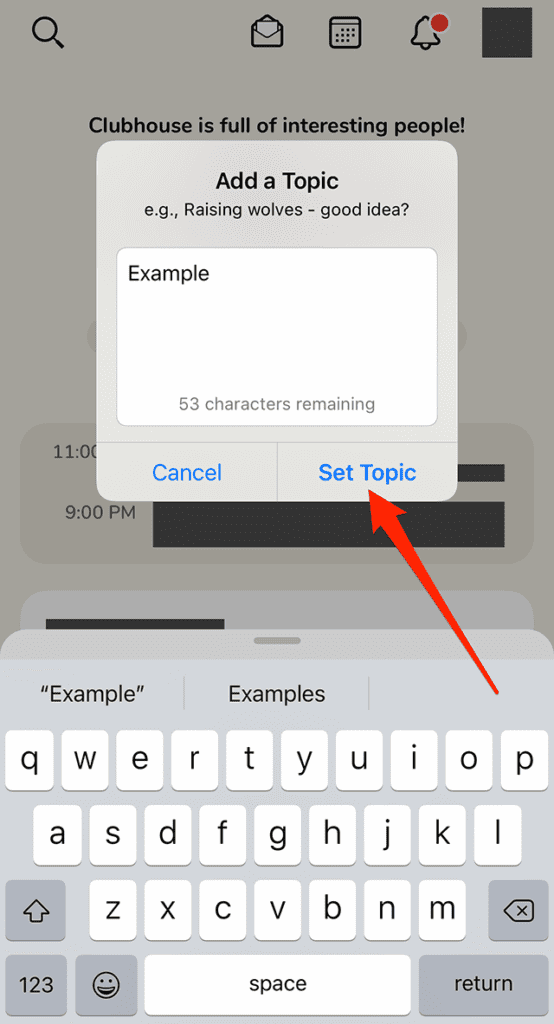
(Image: Adweek)
After setting up your room, you need to pick a topic to discuss. This is your chance to attract an audience that will be keen to listen to your expertise and build trust in your brand. Try to find a key talking point in your niche and discuss it in a responsible, caring way.
2. Valuable Networking Opportunities
Clubhouse also offers valuable networking opportunities for brands. By joining a room with prominent business figures discussing relevant topics, you have the opportunity to provide insightful contributions.
As long as you’re able to demonstrate valuable and expertise to your audience, your thought leaders can greatly boost their personal profile and essentially drive new leads.

(Image: DigitalMarketing)
As you build your profile on the app, you may also get invited by your new networking contacts to join rooms as a speaker. This can be an excellent way of further boosting your profile and resonating with other audience members within your network on a more B2B marketing basis.
Just remember, when joining rooms as a speaker to observe the club rules, as this will be key to ensuring that your message remains both relevant and authentic to your listeners.
3. Promotion via Sponsored Rooms
Due to the way Clubhouse works, quality content is the sole way of resonating with audiences. Brands simply can’t rely on popularity alone to win over audiences. The opportunity here is for brands to sponsor rooms with both interesting and engaging content as a way of reaching niche communities within the app.
This allows brands to emerge as thought leaders, helping to give them an authentic voice. Clubhouse hinges on the sharing of knowledge, and allowing brands to create passionate communities built on engaged customers of the past and future alike.
With Clubhouse, brands should look to approach sponsoring rooms by taking into consideration the experience of the listener first. The lack of visual content makes sponsorship difficult, and radio adverts can’t just be replicated on the platform. As well as this, heavily promotional adverts are likely to jar with the format of the platform which is heavily focused on the informal conversation.
Resourceful Clubhouse brands will have already built up a network of users who may be open to sponsorship opportunities for their rooms. If this is the case and sponsorship is open for discussion, be sure to have a conversation about how you would like your brand referenced. There’s a fine balance to strike between being too subtle and too conspicuous on a platform like this, and all industries are different in terms of where the line for being too salesy can be crossed.
4. Incorporating Analytics Alongside Clubhouse
Analytics engines are great for monitoring the performance of Clubhouse strategies because the app is still growing and there’s more room for trial and error among businesses.
Although it can be challenging for marketers to monitor their campaign effectiveness with the lack of traffic to specifically linked pages to monitor, but because the platform only allows one single live take of discussions without recordings, it offers businesses with specific timeframes in which to monitor traffic and, in turn, discover the effectiveness of their Clubhouse marketing approaches.
Sales funnel-oriented platforms like Google Analytics and Finteza are two potential options that can help to bring valuable visualisations to the audio-only platform.
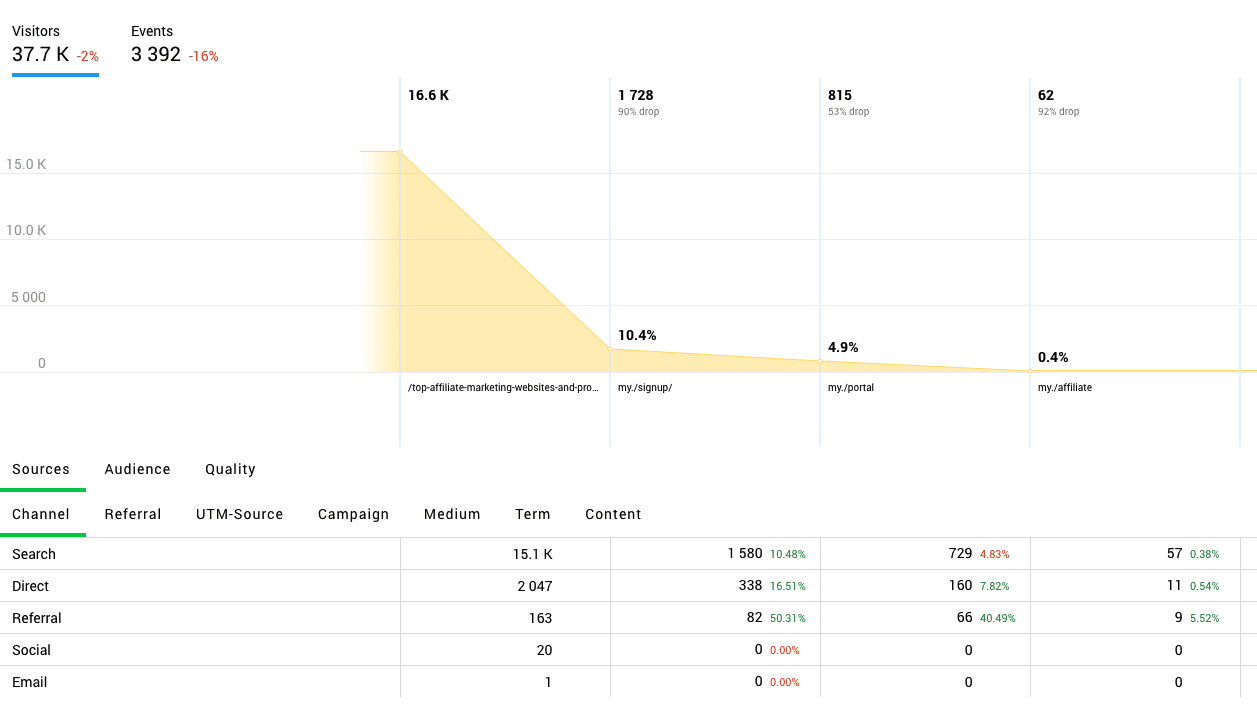
With the help of one-click audience samples, businesses can suddenly find themselves inundated with data surrounding who their most engaged Clubhouse audience is, how they’re interacting with your website, and what conversions they’re most frequently moving towards.
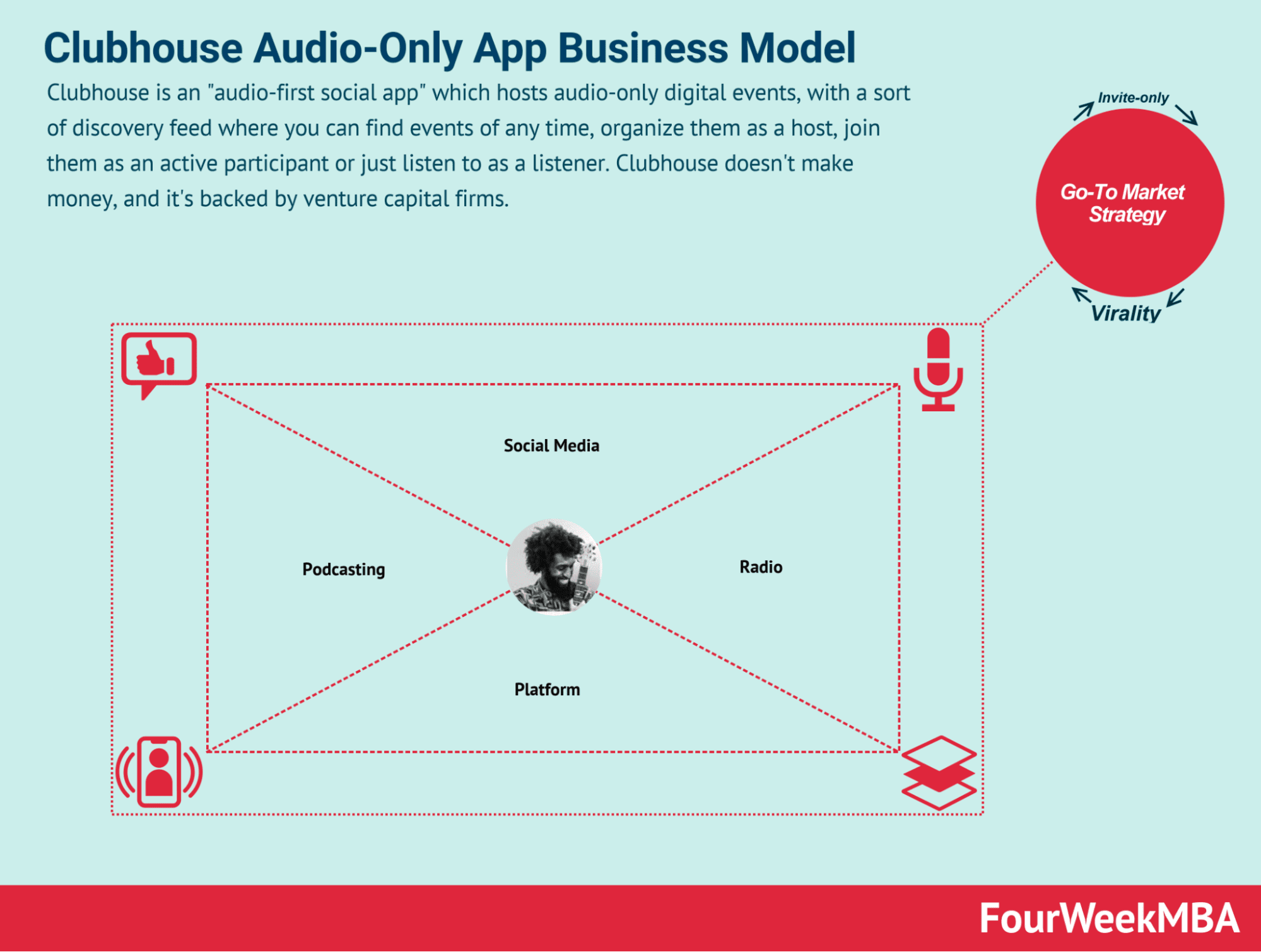
(Image: FourWeekMBA)
The Clubhouse ecosystem is still finding its feet, and the invite-only approach of the app means that there’s still plenty more to come in the future from such a revolutionary approach to social media.
In a platform that unites modern social media and podcasting with a traditional radio-based approach to content, marketers may soon find themselves going back to their old-fashioned broadcasting predecessors to unlock the future of audio-only success.

